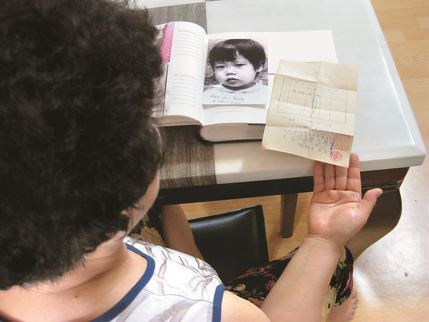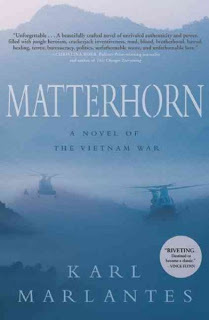Soojung Jo's Blog
January 23, 2015
Preview of “Ghost of Sangju”
I’m thrilled to announce that Land of Gazillion Adoptees and CQT Media and Publishing will soon release my memoir, titled Ghost of Sangju: A Memoir of Reconciliation.
Click through for a preview of the Prologue.
I’m looking forward to posting additional updates as we finalize the book for publishing in Spring 2015!
Filed under: Ghost of Sangju


November 7, 2014
#flipthescript on National Adoption Month
It’s National Adoption Month. Writers from the Lost Daughters blog share what this month means to them.
Video trailer and full length videos by the talented and generous Bryan Tucker
For the full length roundtable discussion click here.
Filed under: In the Media


November 2, 2014
I was not an orphan
(Article published July 18, 2014 at Korean news site Daum.net. Translation by 문지수, edits by Soojung Jo. Original link and text HERE)
She didn’t have a single photo of herself smiling after her daughter was sent overseas for adoption
The care center recommended overseas adoption to Kim. They told her, if a single mother raises her child without any money her child will be unhappy. But she just wanted them to care for child for a while.
In 40 years, nothing has changed. “If the child care’s environment is good, it greatly reduces the need for single mothers to give up their child,” said Kim on July 16th. In her home at Gyeonggi-do, she showed me Soojung’s adoption photo and the receipt from the care center. Soojung and Kim met because Soojung uploaded this photo and information to Holt International’s website and Kim’s niece found it.
At Incheon Airport Arrival Hall, on May 29 last year, Kim Jong Suk (59 and pseudonym) was waiting at the arrivals gate. While she anxiously watched, her daughter Soojung (38) appeared to her for the first time in 34 years. Kim had lived a life feeling like a sinner since her daughter was adopted to the United States at the age of 3. She got down on her knees, and just repeated “I’m sorry.” Her body was overcome by exhaustion because of so much crying. Soojung hugged her without a word. On Soojung’s birthday, February 15, every year Kim has boiled seaweed according to Korean birthday tradition. Finally she could eat the seaweed soup together with Soojung for the first time.
If a single mother raises her child without any money her child will be unhappy.
Kim was a single mother. She had been kidnapped by a stranger, then imprisoned and repeatedly sexual abused. After a while, she was pregnant. Everyone around said to Kim that she should have an abortion, but she decided to produce her child because she thought “child of my body and my part.” In February 1977, Kim delivered a child at maternity clinic in Myeonmokdong Seoul. She was 21 years old. After Soojung was born, her father earned a little money for rent, but he did not help for long. He was always drunk and soon died of alcoholism in the street.
Kim raised Sujung by herself, overcoming all obstacles for almost two years. When Kim couldn’t pay her rent she left her baby with her sister or brother and went out searching for work. However, there weren’t many options in the job field in the 1970’s for a twenty one year old single mother. She remembers thinking how she would even consider begging for a room; however, it was out of her control at the time.
Somebody told Kim of a child care center in Noryangjin Seoul and told her to leave her child there. So Kim left her child at the care center until she could find a place to stay. Kim bought clothes and food for her child and visited the care center whenever she could, but she was not welcome there. They told Kim that if she kept visiting her child there, she would not adapt to being in the care center.
The care center recommended overseas adoption to Kim. They said if a single mother raises her child without any money her child will be unhappy. However, if she were to send her child overseas she would eat well, wear nice clothes, study what she wants and they would treat her like a princess. At first Kim had no intention of sending her child overseas, but after repeated coercion, she thought their words were true.
In 1979 Kim signed a contract giving up her right as a mother. She left her name and address with the care center for when the child wanted to see her birth mother. However, later there was no documentation of Soojung’s mothers name or address at the care center. The only thing written in Soojung’s documents was that she was abandoned at the Noryangjin police station and in 1980 she was sent off to the United States for adoption.
After her child had been sent overseas for adoption, Kim realized that she had made a terrible decision and was filled with guilt and regret. Although she now lives a happy life with her husband, son and daughter, she is always reminded of her oldest daughter Soojung from the pain in her heart.
Every night Kim would wake up crying from dreams of finding her oldest daughter and would often fight with her husband who kept telling her to forget it. After Kim had communicated with her daughter, Soojung had asked for a picture of her birth mother. Kim realized that she did not have a single picture of her smiling and thought back to how she should have raised her child even if it meant starving together in the streets.
Raising a child alone in the world is difficult.
Kim is currently a member of the single moms group. The single moms group is to help single mothers who sent their children off to adoption. There are mothers like Kim who have a painful stories deep in their hearts. There are 12 to 13 members who regularly participate in the club; however, the family members who sent their children to adoption have a hard time telling their stories. Kim says that Korean society still characterizes single mothers as sinners and just recommends overseas adoption. And Kim says that she constantly raises the issue, that for 40 years, nothing has changed. Kim knows a young single mother who works and raises her daughter by herself with helping her parents. Kim says, If the child care’s environment is good, greatly reduces single mothers will abandon their child. And she says, she had lived cold and harsh times when nobody would even give her a sip of water. Now the economy is better, but the support to single mother is still not enough. She points out the society should support families staying together instead of being separated.
According to statistics from the Department of Health and Human Services, domestic and international adoption was 922 children in 2013. And more than 90% of those children are from single mothers.
Filed under: Blog, In the Media


A Collection of One
A Collection of One – 2010 Art exhibit at National Assembly, Seoul, by TRACK (Truth and Reconciliation for the Adoption Community of Korea)
Filed under: In the Media


August 17, 2014
Dissolution
I was meant to be a tree
bathed in soil and sun
coiling my finger branches through a drenching rain
while insects chewed my heart
and I burrowed deeper into the courageous land
Until we all
soil, sun, rain, insects
were one.
But a pigeon fought a war
with a dove
and carried my husked seed into the dry season
While I starved.
I was meant to be a gale
chopped into pounding beats
on a window sill
outside the families
who cowered from the chill of my howl.
But my path was hollow
and homeless
so I howled unfettered
and I met no one
until my wind faded to a place
where my force
Meant nothing.
I was meant to be a song
rising like a soul
toward a silver heaven
where the singular
Insular
light of my tone
made salvation for the lost.
But I was caught in the throat
of a man
who swallowed me in large bites
and then slept in his chair
til I dissipated
To breath.
I was meant to be a stone
heavy and dense,
rolled amongst the grasses
and worms
who held me like a daughter,
a mother, a sister.
But I was lifted
into the thieving pocket of a clever child,
held against her candies and fairytales,
Then painted as a pebble
and laid beside her playthings
until I become a relic
of a myth
and forgotten
Amongst the dust.
Filed under: Blog


July 12, 2014
Andrew Solomon: How the worst moments in our lives make us who we are

photo from TedBlog
“Forge meaning, build identity, and then invite the world to share in your joy.” ~Andrew Solomon at TED2014
Watch the full talk here:
Filed under: Blog


July 4, 2014
Book Review – Matterhorn [It’s not a book so much as a deployment, and you will not return unaltered]
I have no combat experience. I never led Marines in a jungle in a war that had no strategic objective. I have never commanded troops who would die on my watch. I don’t pretend to have even the remotest grasp of the experiences outlined in Matterhorn, and I don’t assume to be 1/1000th the human that Marlantes (or Mellas, or Hawke, or Fitch, or Goodwin, or Cortell, or Jackson, or Vancouver, or…) are. Those people (especially Marlantes) make people like me feel like insignificant pukes, and I am grateful for that. Awhile ago, I had some military training and limited military experience, both of which inform my reading and give me the proper vocabulary to read Matterhorn with a degree of technical ease.
That said, this book is astonishing. It is painfully conceived of real war experience, laboriously gestated over 30+ years, and brilliantly executed in its telling of the horrors of battle and the graceless beauty of the warriors who fight. Upon finishing the book, I wanted to immediately reread it.
I hate when people ask what a book is about. A novel is almost never “about” the plotline, but usually about the book’s themes and overarching message. In this case, Matterhorn is both. It is about a company of grunts fighting their battles in the Quang-Tri province of Vietnam, during monsoon season. It is about the people and events of a specific time and place. It is also about humanity, compassion, race-relations, brotherhood, manhood, ambition, patriotism, war, survival, God, and evil.
A summary from Sebastian Jungerman, writing for the NYT Book Review:
The story is told from the point of view of a young second lieutenant, Mellas, who joined the Marines for confused and vaguely patriotic reasons that are quickly left in tatters by military incompetence. At great psychic and physical cost, Mellas and the rest of Bravo Company, Fifth Marine Division, climb a steep mountain near the intersection of Laos and the DMZ separating North and South Vietnam, then build an outpost capable of withstanding enemy artillery. As soon as they finish, they are told to abandon it because they are needed for a large operation farther south. There ensues a multiweek stagger through impenetrable jungle, the company plagued by lack of food, lack of ammunition and inadequate resupply. One man is killed by a tiger. Another dies of cerebral malaria. Starving to death and bearing a dead friend on a pole, the men of Bravo Company finish their mission and are allowed a brief rest at one of the main support bases.
Soon enough, however, they are ordered to retake Matterhorn, which has since been occupied by the enemy. It is there, on the flanks of their own outpost, that the horror and absurdity of war are finally played out.
Marlantes unceremoniously drops us into the bush and assaults our senses. At once we are submerged in monsoon rains, jungle rot, leeches, acrid smoke, fear, hunger, cold, and exhaustion. In that world, we learn the men around us, we come to love them all.
I can say from experience, there is no job in the world like platoon leader. I was a combat bridging platoon leader in Korea, leading 75 soldiers and a fleet of equipment, at the age of 23. That would have been a ripe old age in the setting of Matterhorn, where platoon commanders are barely drinking age yet leading teenagers with deadly weapons on missions to kill. A company commander would be about 25 and making decisions that would send teenagers home in body bags, before they could even experience adulthood. As a platoon leader in the Army, I loved every aspect of the job and the people – I even loved the things I hated.
The descriptions of combat tedium are so real. I read in an interview where Marlantes scorned Hollywood’s need to make entertainment out of war. There is nothing entertaining or glorious about war, not tactically, not strategically. Marlantes takes us into the little routines of the combat Marine’s life. Readers looking for entertainment might not appreciate these intricacies, but I value truth and this book exudes it.
Marlantes, and men of his ilk, will never have to wonder what they are made of.
Harsh, gritty, brilliant, devastating, powerful, riveting, horrifying, phenomenal, staggering, beautiful, intense, heartbreaking, genius. I highly recommend Matterhorn to everyone.
Read Karl Marlantes’ Navy Cross citation here. (Reads a lot like a chapter from the novel. Marlantes also graduated from Yale and was a Rhodes scholar – before serving in Vietnam)
Read the fascinating odyssey of the novel’s writing here.
Read Sebastian Jungerman’s NYT review here. (from which this post title was quoted)
I highlighted too many passages to quote. Half the book is quotable. Just go read the book and highlight it yourself.
Book review originally published at Filed under: Book Reviews 

Book Review – Nothing to Envy
I don’t remember how I stumbled upon this book, or why I chose to download it. It took me several weeks to read, and I concurrently finished 3 other books because I frequently needed to switch this one out. It’s worth noting that I’ve never had much interest in North Korea. I have a complicated and strange relationship with South Korea, and it was just too far a reach to even consider having an opinion about the northern half of the peninsula. As a child, I didn’t even know what S. Korea was, or where. I knew nothing about its people and could not recognize its language until I was a college graduate. I never knew S. Korea called itself Hanguk, that its language was Hangul, and that the north and south were once the same country. They might as well have been the Dakotas.
My first assignment in the Army was at Camp Laguardia, Uijongbu, Republic of Korea. I had freely chosen that assignment for myself, but as my departure date drew closer I grew increasingly terrified. I called every officer I thought might have a smidge of clout. I begged the branch to reassign me to Ft. Hood with my fiancé. Two weeks after our wedding, with two overstuffed duffel bags and a stomach full of fear, I boarded a plane for Kimpo International Airport, in the heart of Seoul. I envisioned Korea as a black, empty place. I unleashed a lifetime of suppressed anxiety about a country that had not wanted me.
When the plane landed, everything changed. The sun was shining. People were busy, happy, and wealthy. The city was shiny and modern. Little at a time, I began to reclaim my inner Korean, or at least my fully Americanized version of her. This small little blog cannot contain the descriptions of returning to my birth country. There is not enough literary talent on this side of the world to express the range, the depth, the complexities of thought and emotion. Suffice it to say, the experience was staggering.
This is all to say that I have given everything to South Korea. I really had nothing left for North Korea. Until now.
N. Korea was, and remains, basically a prison. It is an entire nation imprisoned by the ideology of pure socialism and absolute power. The regime is so oppressive that a N. Korean citizen could be executed for joking about their dictator’s height. Nothing to Envy is a peek into the lives of typical N. Koreans in the past fifty years. It neatly narrates the downward spiral of a regime, and the awakening of an ideologue nation.
It is hard to imagine a country so closed off, isolated, and completely self-absorbed. It is incomprehensible that N. Koreans would have adored their “Great Marshall” so unwaveringly and swallowed their bitter fate so unflinchingly. But through the personal narratives given in this book, we begin to see. We witness how the regime so cleverly envelops each citizen in a shroud of indoctrination, distrust, uncertainty, impotence, and fear. Kim Il Sung’s particular brand of totalitarianism run so deep that the penance of one citizen must be repaid by the next three blood generations. When fear for one’s own life is not convincing enough, the regime threatens the whole house.
The very real, detailed descriptions of famine and survival depict tragedy at the least, and downright evil at the worst. I never would have realized that N. Korea and Nazi Germany had so much in common, if the tales weren’t right there in undeniable black and white.
But you know what really surprised me? My reaction to the section on reunification. The way my eyes would start to burn, my throat close up a little, and the air would suck out of me. I want reunification for the Koreas, for my first country. I just want some part of Korea to seem whole, because for me everything there is broken. The lives of mothers and children, whole families, governments, two entire nations of brokenness. Even those defectors who manage to reintegrate into S. Korean society never find a wholeness – their hearts are divided across two halves of the same whole. Maybe it’s a little presumptuous, but I know what that feels like. Perhaps that is the fate of the Koreas, and of Koreans – to always be a half. To be living incongruity.
Official Nothing to Envy website
Book review originally posted at Reading In Writing Out
Filed under: Book Reviews







